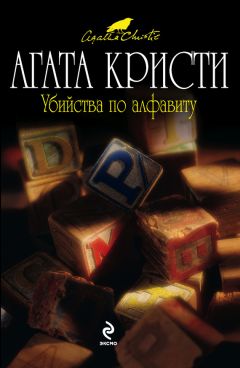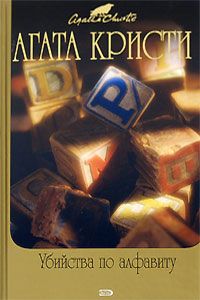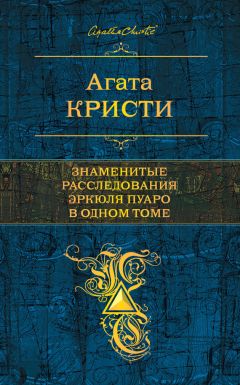Agatha Christie - Английский язык с Агатой Кристи. Убийства по алфавиту
contradict [ˌkɔntrǝˈdɪkt], truthfully [ˈtru:Ɵfʋlɪ], indiscreet [ɪndɪsˈkri:t]
"Well, then?"
"Patience. Everything arranges itself, given time."
"You seem quite pleased with yourself anyway."
"Nothing so far has contradicted my little idea — that is why."
His face grew serious. "My friend Hastings told me once that he had, as a young man played a game called The Truth. It was a game where everyone in turn was asked three questions — two of which must be answered truthfully. The third one could be barred. The questions, naturally, were of the most indiscreet kind. But to begin with everyone had to swear that they would indeed speak the truth, the whole truth, and nothing but the truth."
He paused (он прервался).
"Well?" said Megan.
"Eh bien (фр. ну, так) — me, I want to play that game (я хочу сыграть в эту игру). Only it is not necessary to have three questions (только это необязательно задавать три вопроса: «иметь три вопроса»). One will be enough (одного будет достаточно). One question to each of you (один вопрос каждому из вас)."
"Of course," said Clarke impatiently (конечно, — сказал нетерпеливо Кларк). "We'll answer anything (мы ответим на что угодно)."
"Ah, but I want it to be more serious than that (но я хочу, чтобы это было серьезнее: «более серьезно, чем то = так»). Do you all swear to speak the truth (вы все клянетесь говорить правду)?"
He was so solemn about it (он был так серьезен при этом; solemn — священный; серьезный; торжественный) that the others (что другие), puzzled (недоумевающие), became solemn themselves (стали серьезными сами). They all swore as he demanded (они все поклялись, как он требовал).
"Bon," said Poirot briskly (фр. хорошо, — отрывисто сказал Пуаро; briskly — живо, оживленно). "Let us begin (давайте начнем) — "
each [i:tʃ], solemn [ˈsɔlǝm], puzzle [pʌzl]
He paused.
"Well?" said Megan.
"Eh bien — me, I want to play that game. Only it is not necessary to have three questions. One will be enough. One question to each of you."
"Of course," said Clarke impatiently. "We'll answer anything."
"Ah, but I want it to be more serious than that. Do you all swear to speak the truth?"
He was so solemn about it that the others, puzzled, became solemn themselves. They all swore as he demanded.
"Bon," said Poirot briskly. "Let us begin — "
"I'm ready," said Thora Grey (я готова).
"Ah, but ladies first (но дамы первые) — this time it would not be the politeness (в этот раз, пожалуй, не будет вежливости). We will start elsewhere (мы начнем с кого-нибудь еще; elsewhere — где-то в другом месте)."
He turned to Franklin Clarke (он повернулся к Франклину Кларку). "What (что), mon cher M. Clarke (фр. мой дорогой мсье Кларк), did you think of the hats (вы подумали о шляпках) the ladies wore at Ascot[47] this year (которые женщины носили в Эскоте в этом году)?"
Franklin Clarke stared at him (Франклин Кларк уставился на него). "Is this a joke (это шутка)?"
"Certainly not (разумеется, нет)."
"Is that seriously your question (это действительно ваш вопрос)?"
politeness [pǝˈlaɪtnɪs], wore [wɔ:], joke [ʤǝʋk]
"I'm ready," said Thora Grey.
"Ah, but ladies first — this time it would not be the politeness. We will start elsewhere."
He turned to Franklin Clarke. "What, mon cher M. Clarke, did you think of the hats the ladies wore at Ascot this year?"
Franklin Clarke stared at him. "Is this a joke?"
"Certainly not."
"Is that seriously your question?"
"It is (/так и/ есть)."
Clarke began to grin (Кларк начал ухмыляться). "Well, M. Poirot (ну, мсье Пуаро), I didn't actually go to Ascot (я в действительности не ездил в Эскот), but from what I could see of them driving in cars (но я видел их, /когда они/ ехали на машинах), women's hats for Ascot were an even bigger joke (женские шляпки в Эскоте были даже большей шуткой = еще забавнее/нелепее) than the hats they wear ordinarily (чем те шляпки, которые они носят обычно)."
"Fantastic (причудливые; fantastic — фантастический, причудливый)?"
"Quite fantastic (совершенно причудливые)."
Poirot smiled and turned to Donald Fraser (Пуаро улыбнулся и повернулся к Дональду Фрейзеру). "When did you take your holiday this year, Monsieur (когда вы брали отпуск в этом году, мсье)?"
car [kɑ:], fantastic [fǝnˈtæstɪk], holiday [ˈhɔlɪdeɪ]
"It is."
Clarke began to grin. "Well, M. Poirot, I didn't actually go to Ascot, but from what I could see of them driving in cars, women's hats for Ascot were an even bigger joke than the hats they wear ordinarily."
"Fantastic?"
"Quite fantastic."
Poirot smiled and turned to Donald Fraser. "When did you take your holiday this year, Monsieur?"
It was Fraser's turn to stare (настала: «это была» очередь Фрейзера уставиться /на Пуаро/). "My holiday (мой отпуск)? The first two weeks in August (первые две недели в августе)."
His face quivered suddenly (его лицо неожиданно скривилось). I guessed (я догадался) that the question had brought the loss of the girl he loved back to him (что вопрос напомнил ему о потери девушки, которую он любил: «что вопрос принес потерю девушки, /которую/ он любил, назад ему»).
Poirot, however, did not seem to pay much attention to the reply (Пуаро, однако, казалось, не обратил много внимания на ответ). He turned to Thora Grey (он повернулся к Торе Грей) and I heard the slight difference in his voice (и я услышал легкое изменение в его голосе). It had tightened up (он утратил мягкость; to tighten up — затягивать). His question came sharp and clear (его вопрос прозвучал резко и четко).
"Mademoiselle (мадемуазель), in the event of Lady Clarke's death (в случае смерти леди Кларк), would you have married Sir Carmichael (вы бы вышли за сэра Кармайкла) if he had asked you (если бы он сделал вам предложение: «попросил вас»)?"
loss [lɔs], difference [ˈdɪfǝrǝns], event [ɪˈvent]
It was Fraser's turn to stare. "My holiday? The first two weeks in August."
His face quivered suddenly. I guessed that the question had brought the loss of the girl he loved back to him.
Poirot, however, did not seem to pay much attention to the reply. He turned to Thora Grey and I heard the slight difference in his voice. It had tightened up. His question came sharp and clear.
"Mademoiselle, in the event of Lady Clarke's death, would you have married Sir Carmichael if he had asked you?"
The girl sprang up (девушка подпрыгнула). "How dare you ask me such a question (как вы смеете задавать мне такой вопрос). It's — it's insulting (это оскорбительно; to insult — оскорблять, обижать)!"
"Perhaps (возможно). But you have sworn to speak the truth (но вы поклялись говорить правду; to swear). Eh bien (фр. ну, так) — yes or no (да или нет)?"
"Sir Carmichael was wonderfully kind to me (сэр Кармайкл был удивительно добр ко мне). He treated me almost like a daughter (он обращался со мной почти как с дочерью). And that's how I felt to him (и это то, что я чувствовала по отношению к нему = и именно так…) — just affectionate and grateful (только нежные и благодарные /чувства/; affectionate — любящий, нежный)."
"Pardon me (простите меня), but that is not answering yes or no (но это не значит ответить «да» или «нет»), mademoiselle (мадемуазель)."
She hesitated (она поколебалась). "The answer (ответ), of course (конечно), is no (нет)!"




